Project
Keppel remains steadfast in Vietnamese real estate market
Published
12 months agoon
Keppel has made its mark as a global asset manager and operator in infrastructure, real estate, and connectivity. Its real estate president for Vietnam, Joseph Low, shares with VIR’s Quynh Chau the company’s development plan for 2025 and beyond.
What have been the highlights of Keppel’s activities in Vietnam thus far?
Vietnam is one of our key markets. Over three decades, Keppel has grown to become one of the largest foreign real estate investors in the country, with 25 projects and a total registered capital of approximately $3.8 billion.
 |
| Joseph Low, President, Real Estate (Vietnam), Keppel Ltd. |
Keppel’s real estate division is an innovative urban space solutions provider that leverages technology to deliver sustainable and customer-centric solutions that enrich people and communities. It is focused in the areas of sustainable urban renewal, senior living, urban living, retail and large-scale integrated developments.
In Vietnam, we are well known for our quality residential developments, such as Estella Heights, Celesta Rise, and Empire City, as well as Grade A commercial developments like Saigon Centre in Ho Chi Minh City. We are also strengthening our retail presence in Hanoi, and will launch the Hanoi Centre retail development this year.
We are bringing in investors to fund the creation of high-quality projects through our quality investment platforms and asset portfolios. A good example is the Keppel Vietnam Fund, our private fund which combines capital from Keppel and global institutional investors to co-invest in residential developments, commercial properties as well as mixed-use projects and townships in Vietnam. To date, the fund has invested alongside Keppel in several high-quality residential projects in Hanoi and Ho Chi Minh City.
Our deep operating capabilities extend beyond real estate and include infrastructure solutions. In 2023, our infrastructure division introduced an energy-as-a-service (EaaS) solution to Vietnam. Our subscription-based EaaS solution, which includes energy supply, cooling, decarbonisation and smart energy management, enables businesses and building owners to enjoy significant energy savings without having to make heavy upfront investments.
As Vietnam accelerates its plans to reach net-zero by 2050, we see compelling opportunities for us to offer more of our sustainability solutions and services in the country.
Keppel has consistently championed sustainability. Could you share some of your notable sustainability initiatives in Vietnam?
We are committed to making a positive impact through the three-fold approach of running our business responsibly, making sustainability our business through investing in and creating solutions for a sustainable future, and contributing to the community through volunteerism and philanthropy.
In Vietnam, we have integrated various innovative and sustainable initiatives into our operations to achieve meaningful environmental, social and governance outcomes for our stakeholders. For example, our projects are designed to meet high green standards and incorporate features such as low-carbon energy sources, including renewables, chemical-free cooling tower water management systems and environmentally friendly building materials.
We are also driving sustainable urban renewal (SUR) initiatives, where we leverage technologies to future-proof and extend the lifespan of older buildings. We believe that retrofitting existing assets can be a more sustainable, less costly and faster-to-market solution compared to demolition and rebuild. It also allows asset owners to update their buildings to be smarter, better connected, more sustainable and ultimately deliver higher returns to its owners.
A prime example is the implementation of solutions for Saigon Centre, Keppel’s flagship mixed-use project in central Ho Chi Minh City. The initiatives rolled out under SUR have achieved over 40 per cent energy savings since July 2023. Saigon Centre also generated over 166,000 kWh of renewable energy between 2021 and 2024 through its rooftop solar panels.
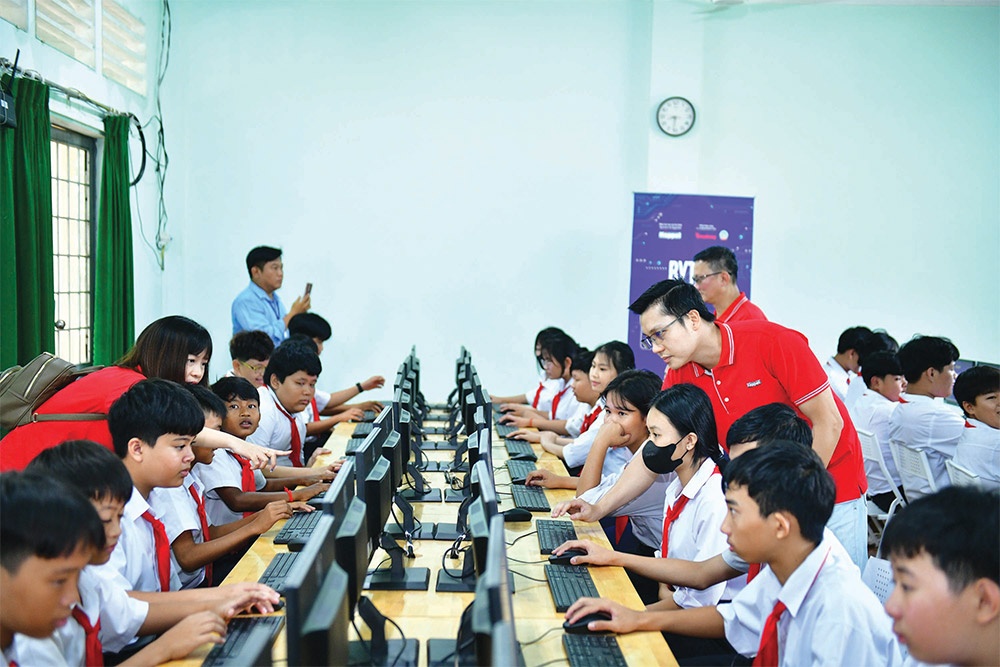 |
| Bytes for Future helps equip young generations with the necessary tools to thrive in the digital era |
Meanwhile, Keppel’s CSR programmes focus on environmental protection, education and supporting underprivileged communities.
Since 2021, we have contributed over $560,000 to society through various meaningful initiatives. This includes a donation under SG Community Cares which supported communities impacted by Typhoon Yagi, and a $296,000 donation to support COVID-19 relief efforts.
One of our key CSR projects is the Living Well initiative, which provides clean water to areas in the Mekong Delta affected by drought, benefiting around 70,000 people. Keppel also carried out the R.I.S.E. to the Challenge campaign, a public outreach initiative to raise awareness about climate change, as well as planted 3,000 trees in Dong Nai province in support of Vietnam’s national programme that targets to plant one billion trees.
To enhance digital learning for students, we launched a new Bytes for Future initiative in Dong Khoi and Bien Gioi secondary schools in Tay Ninh province. Under the initiative, Keppel sponsored 80 computers and four air conditioners to enhance the learning environment for students at the schools, as well as donated books to the schools’ libraries. The initiative has benefitted over 800 students.
Over the past four years, Keppel’s employees have volunteered nearly 8,000 hours, supporting nearly 85,000 beneficiaries across various outreach activities. As we expand our footprint in Vietnam, we remain dedicated to sustainable development and creating a positive impact on local communities.
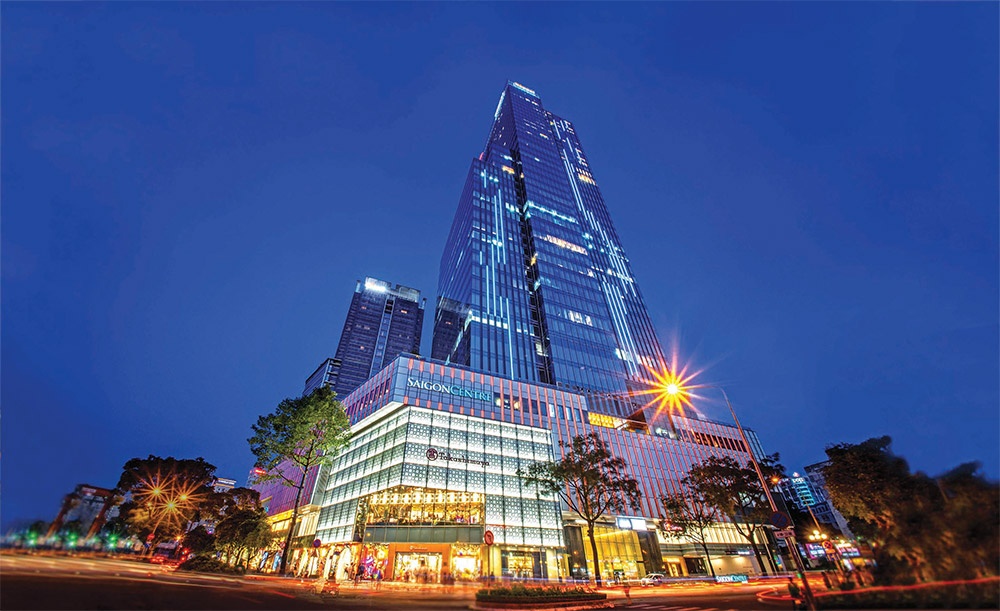 |
| Saigon Centre, Keppel’s flagship mixed-use development in Vietnam |
What are Keppel’s development plans in this country?
With Vietnam’s strong focus on sustainable development, we believe that Keppel’s solutions can help unlock new opportunities for growth in the country.
We are well-placed to bring in global financial investors who can contribute capital to fund the development of more solutions and assets that are also smarter and greener. We will leverage our strong track record in the development and operation of such assets to provide critical infrastructure and services to Vietnam.
In the real estate space, we continue to see many opportunities in Vietnam, a market where we have successfully established a quality portfolio spanning residential, office and retail properties. We are looking forward to the launch of Hanoi Centre, our upcoming retail development slated to open next year.
Keppel has also secured several EaaS contracts in Vietnam to design and retrofit the existing cooling systems of its clients’ developments to improve energy efficiency and asset performance, as well as is exploring with various Vietnamese partners to explore the implementation of other types of EaaS.
With over two decades of experience in designing, developing, and operating data centres, and a premier portfolio of 35 data centres across key data hubs in Asia-Pacific and Europe, Keppel is well-placed to offer our integrated data centre solutions to support Vietnam’s fast-growing digital economy.
Source: https://vir.com.vn/keppel-remains-steadfast-in-vietnamese-real-estate-market-122713.html
You may like
-
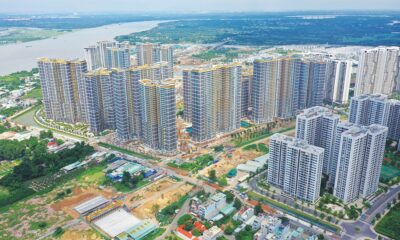

Uncertainty weighing on real estate
-
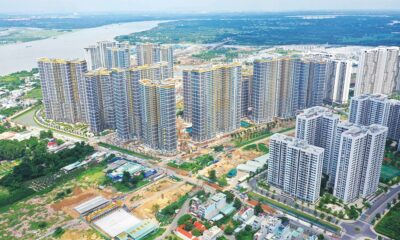

Hopes endure for real estate optimism
-


Vietnam real estate market holds steady amid tariff uncertainty
-
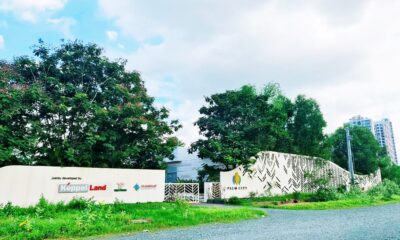

Keppel unlocks $104 million with divestment from Palm City
-
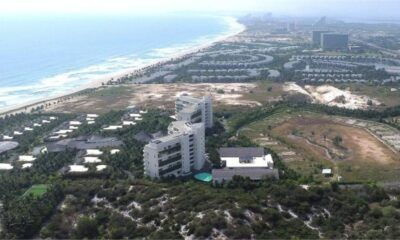

Massive investments flow into Cam Lam district as airport town to take shape in Vietnam’s Khanh Hoa province
-
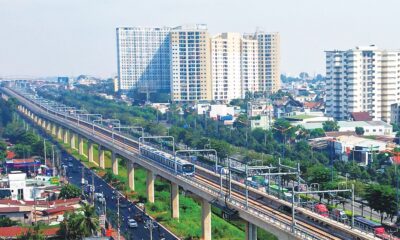

TOD model essential for real estate
Project
Vietnam’s Exclusive Economic Zone boasts over 1,000 GW of wind power potential: report
Published
9 months agoon
April 27, 2025Vietnam’s Exclusive Economic Zone (EEZ) has a wind power potential of 1,068 GW, nearly 470 GW more than previously estimated, according to a report released Friday by the National Center for Hydro-Meteorological Forecasting (NCHMF).
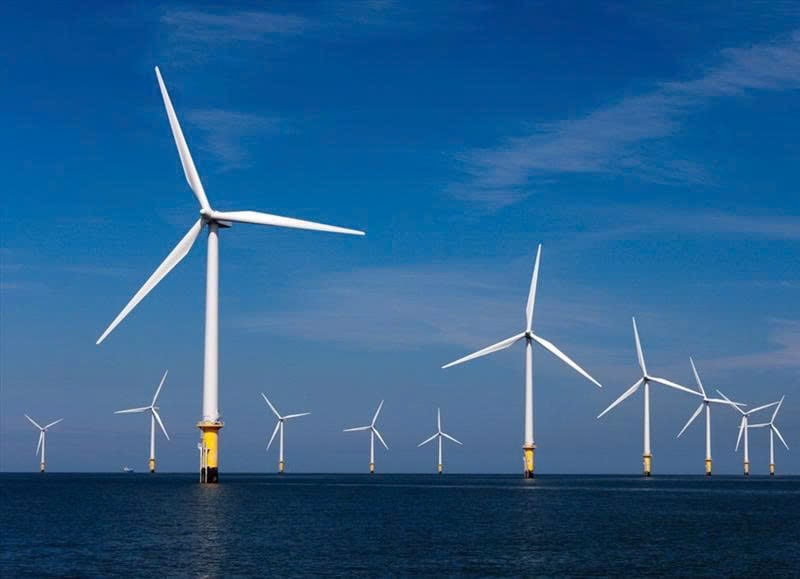
An offshore wind power project in Vietnam. Photo courtesy of VnEconomy.
The report, titled “Detailed Assessment of Wind Resource Potential in Coastal (up to 6 Nautical Miles) and Offshore Areas in Vietnam,” was conducted by the NCHMF with support from the United Nations Development Program (UNDP) and the Norwegian Embassy.
This wind potential was measured at a height of 100 meters above sea level, said Mai Van Khiem, director of the NCHMF. He noted that from November to February each year, wind capacity accounts for half of the annual total – peaking in December and gradually decreasing, with the lowest levels recorded in May.
The southern offshore areas account for 894 GW of this potential, while the northern areas contribute 174 GW.
In nearshore zones (up to 6 nautical miles), the total technical wind power potential is 57.8 GW. The Bac Lieu-Ca Mau region alone contributes nearly 30% of this, while the Ninh Thuan-Binh Thuan area accounts for 24 GW. Although the Quang Tri-Hue region has lower potential, it offers stable wind speeds during the winter months. The Red River Delta has a modest potential of 0.17 GW.
Compared to previous assessments, such as the World Bank’s 2021 study and data from the Global Wind Atlas (GWA), this report provides more detailed and higher-resolution information, both spatially and temporally.
“Notably, the EEZ potential outlined in this report exceeds the World Bank’s estimate by 469 GW, primarily due to the broader scope of the survey and more refined climate modeling using domestic observational data,” the research team explained.
They also emphasized the use of the Weather Research and Forecasting (WRF) model customized specifically for Vietnam, which enhanced the accuracy of the results.
The findings are based on wind data collected from 26 coastal and island meteorological stations, satellite sources from CCMP, ASCAT, and SCATSAT-1 (covering 30 years of ocean surface wind data), as well as buoy data from Nghe An province and seabed depth measurements.
A key innovation in this report is the integration of potential impacts from extreme weather events. Typhoons and tropical depressions occurring between August and October pose structural and safety risks to wind turbines. Meanwhile, strong winds and high waves during the northeast monsoon season can hinder access to and maintenance of offshore wind systems.
To support model calibration and long-term observation, the research team recommends increased investment in offshore wind monitoring stations at heights exceeding 100 meters. They also suggest incorporating these findings into offshore wind development strategies and national marine spatial planning.
Additionally, the team advocates for expanding research into other forms of marine renewable energy, such as wave, tidal, and ocean thermal energy.
“Vietnam has some of the most promising offshore wind resources in the region, creating a strong foundation for the development of a large-scale offshore wind industry. This will contribute to energy security, green economic growth, and the achievement of net zero commitments,” they said.
The study provides a vital scientific basis for policy planning, identifying priority development zones, attracting investment, building infrastructure, and training the future offshore wind workforce, the team added.
Hoang Duc Cuong, deputy director of the Department of Meteorology and Hydrology, emphasized that Vietnam lies within a strong and stable Asian monsoon belt, giving it abundant wind energy potential. He noted that this renewable source will play a key role in meeting the country’s climate change goals and advancing a low-carbon economy.
However, he also warned that marine-based natural disasters are highly complex and could significantly impact the stability of offshore wind operations and energy generation.
The ever-changing status of the global economy following last week’s tariff shocks continue to loom large among investors in Vietnam’s real estate market.
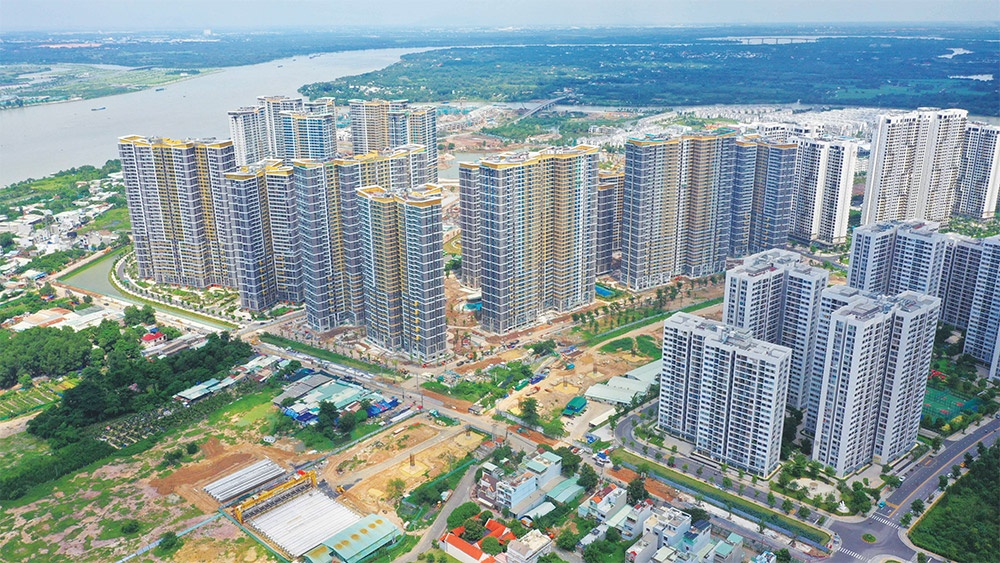 |
| All real estate segments are at risk of losing appeal if high global tariffs are eventually put in place, photo Le Toan |
Pham Lam, vice chairman of the Vietnam Real Estate Association, said that while it is premature to determine the full impact of new US import tariffs on Vietnam’s property market, early signs point to shaken investor sentiment and potential disruptions to foreign investment.
“If multinational corporations scale back or delay their factory expansion plans, the demand for land and factory leasing could decline, which may place downward pressure on industrial rents, lead to increased vacancy, and postpone new industrial zone developments,” he said. “This would affect key industrial property markets such as Bac Ninh, Bac Giang, Haiphong, Long An, and Binh Duong.”
Meanwhile, real estate expert Nguyen Hoang said that the United States remains one of the most critical export destinations for Vietnam’s foreign-invested enterprises.
“Any change in tariffs will significantly influence capital flows, investor confidence, and manufacturing strategies of companies operating in Vietnam. If a high tariff is fully implemented in 90 days, it could seriously diminish Vietnam’s investment appeal – affecting all real estate segments as a result,” Hoang said.
Vietnam’s property market has only recently emerged from a prolonged two-year downturn.
“It remains highly sensitive to economic and policy shocks. Investors have remained cautious, and any further external pressure could threaten to break the fragile liquidity recovery, potentially sending the market back into a period of short-term stagnation,” Hoang added.
Alex Crane, managing director of Knight Frank Vietnam, said that the recent tariff twists by the US casts a shadow of uncertainty, with potential implications for various segments of the market.
While manufacturing has shown resilience, it is still on the path to full recovery from the pandemic, particularly in labour-intensive sectors like garments and furniture. Tariffs imposed now would not have as severe an impact as they might have during Vietnam’s 2019 peak, but consequences are still expected, Crane said.
“I may expect that major transactions, especially those involving large capital outlays, are being paused or undergoing extended due diligence as investors and developers reassess assumptions and underwriting models and commercial occupiers are expected to defer large capital expenditures in the short term,” Crane said.
In addition, the response from the State Bank of Vietnam, particularly regarding monetary policy, will be crucial. While a rate cut may not effectively stimulate residential demand (as demonstrated in 2024), targeted lending for key industries and easing of loan-to-value ratios or debt-to-income limits for developers could provide relief.
“At present, most segments of the real estate market are in a holding pattern, awaiting clarity from the evolving negotiations between the Vietnamese and US governments. While uncertainty is unsettling, Vietnam’s underlying fundamentals remain sound, and the market’s long-term outlook is still viewed positively,” he added.
Nguyen Dung Minh, deputy CEO of MIK Group, has warned that under the new US tariff regime, many investors will be forced to reassess their strategies, likely leading to a decline in the demand for industrial land.
“Investors will need time to re-evaluate their actual demand and incoming orders and make necessary adjustments before they can fully gauge the extent of the impact,” Minh said.
He added that the implications go beyond just industrial land. “The new US tariffs are also expected to disrupt supply chains and negatively affect supporting sectors such as logistics, warehousing, and raw materials manufacturing. As production slows, so too will the demand for land associated with these services,” Minh said.
| Trang Bui, country head Cushman & Wakefield Vietnam
While the effects of tariffs are typically delayed, most economists warn that they may eventually fuel inflation and dampen economic growth. Many manufacturing firms could opt to postpone their expansion plans in the short term if export duties become too burdensome. There is also a possibility that some companies may look to diversify their supply chains towards a Vietnam+1 model, shifting parts of their operations to neighbouring countries. This could lead to a decline in demand for factories and warehouse leasing, two key drivers of the industrial real estate segment. However, it is important to recognise that industrial real estate is fundamentally a long-term investment. Vietnam has long positioned itself as the manufacturing hub of Southeast Asia, thanks to its strategic location and the “bamboo diplomacy” approach, which has enabled the country to swiftly join trade negotiations and sign multiple free trade agreements. Moreover, many manufacturers in Vietnam have already established tightly integrated supply chains. As such, their investment plans tend to operate on a much longer time horizon than the near-term effects of tariff policy. Relocating supply chains typically requires at least 3–5 years, making short-term shifts less likely. Overall, Vietnam’s industrial real estate sector has proven resilient under various political and economic conditions. Investors would do well to focus on long-term trends and structural advantages. Manufacturers, in particular, may take this opportunity to secure high-quality industrial assets, invest in automation, and pull in skilled labour, while continuing to monitor developments in upcoming trade negotiations with caution. Nguyen Thi Bich Ngoc, CEO, Sen Vang Group When it comes to the reciprocal tariff policy announced by the US, the greater danger currently lies not in the tariff itself, but in the heightened sense of uncertainty it has triggered across the Vietnamese market, a sentiment clearly reflected in recent VN-Index fluctuations. In the short term, the policy will weigh heavily on Vietnam’s industrial real estate sector. However, in the long run, this challenge could serve as a catalyst for stronger growth. It presents an opportunity for the government and industrial zone developers to rethink their strategies, offering more competitive, attractive solutions to both foreign and domestic investors. Rather than relying solely on external trends like the China+1 shift, Vietnam should leverage its inherent competitive advantages, including a strategic geographic location, a skilled and cost-effective labour force, and political stability, to pull in long-term investment. These are undeniable strengths that set Vietnam apart. Moreover, this is also an opportune moment for Vietnam to re-evaluate and restructure its key sectors, prioritising strategic industries with high growth potential. Continued engagement in bilateral and multilateral trade agreements will open up new opportunities and elevate Vietnam’s position both regionally and globally. Ultimately, we must seize this challenge as a turning point, transforming pressure into momentum for sustainable development. Vo Hong Thang, Investment director DKRA Group The industrial infrastructure, commercial, and residential real estate segments are all likely to face increasing headwinds if a huge tariff increase is eventually implemented. In recent years, a number of developers have made significant investments in industrial zones, betting on a continued influx of foreign direct investment. However, the new tariff policy raises the possibility of such flows being diverted to other countries. Vietnam now faces the risk of having built the nest, but being unable to attract the eagle. In addition, liquidity in both residential and commercial real estate, including retail, office, and hospitality, is likely to weaken in the short term due to more cautious investor sentiment, defensive capital flows, and reduced purchasing power from end-users. Niche investment segments such as serviced apartments, tourism-related accommodations, and foreign buyer housing could also see demand drop, particularly as the foreign expert and executive workforce, typically a key demand driver, scales back plans to live and work in Vietnam. |
Project
Central Vietnam city seeks $1.84 bln for 15 projects in economic zone
Published
9 months agoon
April 26, 2025Authorities of Hue city in central Vietnam have released a list of 15 projects in Chan May-Lang Co Economic Zone which will need VND47.5 trillion ($1.84 billion) in investment capital between 2025 and 2026.
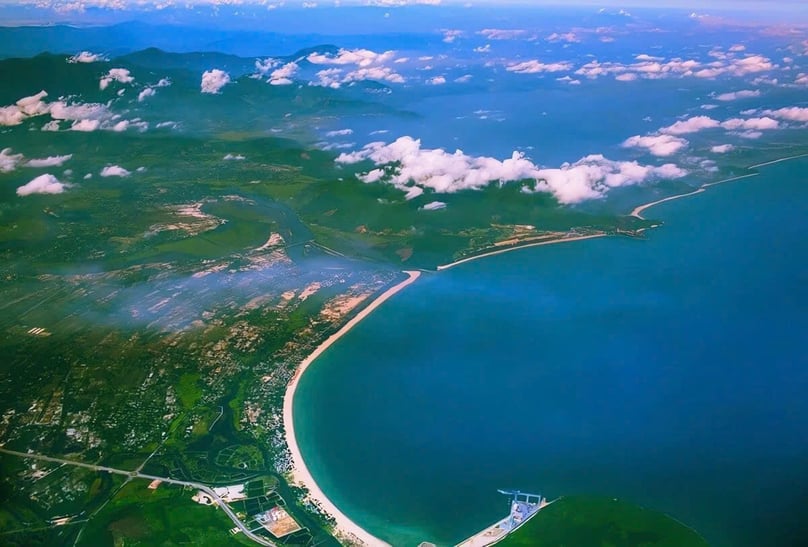
Chan May-Lang Co Economic Zone in Hue city, central Vietnam. Photo by The Investor/Dinh Duy.
Notable projects include the Chan May non-tariff zones No. 1 and 2 infrastructure development project, with a total area of over 503 hectares and combined investment capital of VND2.8 trillion ($108.23 million).
Another is the VND20 trillion ($773 million) Chan May Urban Area project (locations 1 and 2), which will cover 225 hectares and be implemented over five years.
The LNG terminal project at Chan May Port, 27 hectares with an investment of VND8.6 trillion ($332.43 million), is set for five-year implementation.
The 120-hectare Bai Ca eco-tourism project in Lang Co township will have investment capital of VND2.5 trillion.
The Lang Co beach resort, with an area of 45 hectares and total investment of VND4 trillion ($154.62 million), will be carried out over five years; while the 75-hectare Lap An lagoon tourism, urban development and resort complex in Lang Co township will cost VND6 trillion.
According to the management board of Hue Economic and Industrial Zones, since its establishment, Chan May-Lang Co Economic Zone has attracted 55 investment projects which remain valid, with total registered capital of VND97.32 trillion ($3.76 billion).
Among these, 15 are foreign-invested projects with combined capital of VND56.02 trillion ($2.17 billion), accounting for 57.56% of the total.
Several prominent foreign investors have established a presence in the zone, such as Banyan Tree Group (Singapore) with the Laguna Lang Co Resort and Winson Group (Taiwan) with the Billion Max Vietnam Export Processing Factory.
Chan May-Lang Co has become a destination for investments in sectors like tourism and resort development; seaport infrastructure; logistics; clean industry; and high-tech, environmentally friendly industries, with annual revenue reaching nearly VND4 trillion ($154.62 million) and tax contributions of around VND300 billion.
The management board said Hue city has proposed the Ministry of Construction review the adjustment of the EZ master plan through 2045, for submission to the Prime Minister.
The strategic goal is to develop Chan May-Lang Co into a key economic zone of central Vietnam – a coastal gateway offering logistics services for the central region and the East-West Economic Corridor, as well as a hub for high-end tourism services.
To attract investors, the local government will offer a range of incentives such as a 10% corporate income tax rate for 15 years from the first year the project generates revenue; import tax exemption for goods to create fixed assets for investment projects, and land and water surface rental exemptions, the board said.

Bac Giang International Logistics Centre launched

Vietnam’s Exclusive Economic Zone boasts over 1,000 GW of wind power potential: report

Uncertainty weighing on real estate

Central Vietnam city seeks $1.84 bln for 15 projects in economic zone

